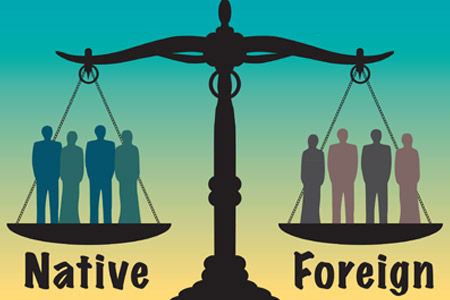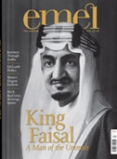
Dilwar Hussain - Glad Tidings to Strangers
Issue 97 October 2012
It is quite disconcerting to see Muslims disregarding the rights of recent migrants who come to this country for a better future.
The Prophet Muhammad once stated, “Islam began as a stranger and will return as a stranger, so give glad tidings to the strangers!” Islam began in a desert, semi-nomadic climate where tribalism had a strong influence on people’s lives. One of the key aspects of the Prophet’s struggle was to work against this tribalism in which there was little room for strangers and foreigners.
Given the struggle of Prophet, I have been a little concerned to see attitudes of “they are coming here and taking our jobs” developing amongst some Muslims whose family, as close as one generation ago, migrated and settled in this country.
One story shows how the Prophet Muhammad, early on in his life, stood up against injustice and xenophobia. When Muhammad was in his teens, a trader from Yemen came to Makkah and was wronged by one of the Makkans who bought goods from him and refused to pay the agreed price. In those days, people would be protected through their family or clan and, knowing that the trader had no such protection, the Makkan felt that he would get away with this. The trader went to the Ka’ba (almost like a village square) and pleaded for help. In response, a group of people met in the house of Abdullah ibn Jud’an. Those present at the meeting formed a pact to protect the innocent and downtrodden. Muhammad was a party to this pledge. Later, in old age, he recalled the pledge, the Hilf al-Fudul (the Virtuous Pact), with fondness and said that he was still bound by the pact.
Islam is a religion based on equality of all people regardless of their differences. Muslims believe all human beings have originated from the same source—the blessed Prophet said, “You are all Adam’s offspring and Adam was made of clay.” The Qur’an says: “O mankind! We have created you from a male and a female, and made you into nations and tribes, that you may know one another. Surely, the most honourable of you is the one who is most conscious of God. God is all-knowing, all-aware.” (49:13)
Difference and diversity are thus seen as positive characteristics of our lives, present by God’s Divine intent and not by accident. This is exemplified in the Hajj, the pilgrimage to Makkah, during which the pilgrims, whether rich or poor, king or peasant, all dress in the same simple clothes and worship side by side, equal before God.
Furthermore, the instruction to help those in need is repeated throughout the Qur’an and mentioned in many hadith. The vision of Islam is for a benevolent society where we try our best to look after each other, do what we can do to make society better—if we cannot do that in monetary terms, then even picking up some litter, or just being pleasant and greeting people with a smile is enough. Importantly, we should not just relying on the state to be the benevolent hand in society. Social justice is a concern for everyone. It is that spirit of concern and thought for others, based on human equality and dignity, in our everyday life that is important. Similar teachings can be found in respect of the rights of neighbours, regardless of faith. “He is not a true Muslim, who eats his fill while his neighbour sleeps on an empty stomach,” said the blessed Prophet.
British Muslims are lucky to live in a society where poverty and hardship are not as common as in other parts of the world; a society where the basic rights of human beings are valued. But the discourse on immigration and the rights of those who have sought asylum in this country is worrying, and not just amongst the wider public. Increasingly, the rights of the stranger, the foreigner and those who are ‘not like us’ are at risk due to the tempo of this public debate. Furthermore, as Muslims climb the socio-economic and class ladder, the temptation to kick the ladder away once one has climbed it must be avoided. The churches and human rights groups have provided some admirable leadership on such issues, and needless to say Muslims—especially because they have recently experienced migration and settlement themselves—should do more to work for the rights of the stranger in our midst. Let us bring “glad tidings to the strangers.”
Dilwar Hussain is President of the Islamic Society of Britain.
Bookmark this |
|
Add to DIGG |
|
Add to del.icio.us |
|
Stumble this |
|
Share on Facebook |
|
Share this |
|
Send to a Friend |
|
Link to this |
|
Printer Friendly |
|
Print in plain text |
|


Comments
0 Comments